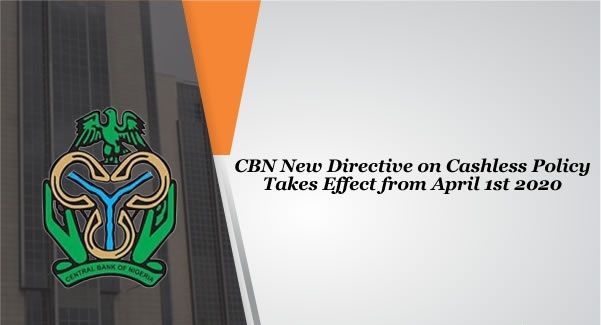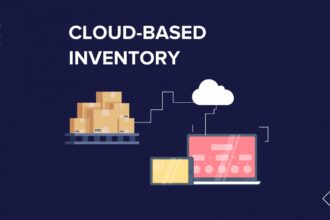The Impact of Nigeria’s Cashless Policy on Digital Marketing
Introduction
Nigeria’s journey toward a cashless economy, kickstarted by the Central Bank of Nigeria (CBN) in 2012, has reshaped how businesses and consumers interact. The cashless policy which takes effect on April 1st 2020, was designed to reduce reliance on physical cash and promote digital payments, has had a ripple effect across industries, with digital marketing emerging as a key beneficiary. By encouraging electronic transactions through mobile apps, POS terminals, and online banking, the policy has transformed consumer behavior, opened new avenues for marketers, and accelerated Nigeria’s digital economy. This article explores how Nigeria’s cashless policy has influenced digital marketing, highlighting opportunities, challenges, and practical strategies for businesses to thrive in this evolving landscape.
The Cashless Policy: A Brief Overview
The CBN’s cashless policy aims to modernize Nigeria’s financial system by promoting digital payment methods such as mobile money, bank cards, and online transfers. Introduced to curb cash-related crimes, reduce transaction costs, and boost financial inclusion, the policy gained momentum with initiatives like the 2022 naira redesign and limits on cash withdrawals (e.g., N500,000 weekly for individuals and N5 million for corporates as of January 2023). Despite challenges like infrastructure gaps and cybersecurity concerns, digital transactions have surged, with mobile money and POS usage growing significantly. For digital marketers, this shift has created a fertile ground for innovation and engagement.
How the Cashless Policy Fuels Digital Marketing Growth
1. Increased Adoption of Digital Platforms
The push for cashless transactions has driven Nigerians to embrace digital platforms, from mobile banking apps to e-commerce marketplaces. With 153 million internet subscribers as of October 2022 and 82% mobile phone penetration, the digital space is buzzing with potential customers. For digital marketers, this means:
- Wider Audience Reach: More Nigerians are online, browsing social media, shopping on platforms like Jumia, or using apps like Opay. Marketers can target these audiences with tailored ads on Instagram, WhatsApp, or Google.
- Social Commerce Boom: Platforms like Instagram and WhatsApp have become hubs for social commerce, where businesses showcase products and accept payments via mobile apps or POS. The cashless policy has made these transactions seamless, boosting conversions.
- Actionable Insight: Digital payment platforms generate data on consumer spending habits, enabling marketers to craft personalized campaigns. For instance, a Lagos-based fashion brand can analyze Paystack transaction data to target high-value customers with exclusive offers.
2. Rise of Fintech and Payment Gateways
The cashless policy has spurred the growth of fintech startups like Flutterwave, Paystack, and Remita, which simplify online payments. These platforms have empowered digital marketers by:
- Streamlining E-Commerce: Payment gateways integrate easily with websites and social media shops, reducing cart abandonment rates. For example, a small business in Abuja can use Flutterwave to accept payments from customers in Kano without cash exchanges.
- Enabling Targeted Advertising: Fintech platforms provide analytics on transaction volumes and customer demographics, helping marketers refine their strategies. A digital agency can use this data to run Google Ads campaigns targeting young professionals who frequently use mobile money.
- Supporting SMEs: The policy has encouraged small businesses to adopt digital payments, expanding the market for digital marketing services. Agencies like Bintus Art and Everything can offer SMEs affordable social media management and ad campaigns to boost their online presence.
3. Shift in Consumer Behavior
The cashless policy has changed how Nigerians shop and pay, creating new opportunities for digital marketers:
- Impulse Buying: Digital payments are faster and more convenient, encouraging impulse purchases. Marketers can capitalize on this with flash sales or limited-time offers promoted via Instagram Reels or WhatsApp Stories.
- Trust in Digital Transactions: As Nigerians grow accustomed to secure digital payments, they’re more likely to shop online. Marketers can build trust by highlighting secure payment options in campaigns, such as “Pay safely with Paystack” on a website.
- Mobile-First Strategies: With mobile banking on the rise, marketers are prioritizing mobile-optimized campaigns. For instance, a food delivery service in Port Harcourt can use SMS marketing to promote discounts, knowing customers can pay instantly via USSD codes.
4. Financial Inclusion and Market Expansion
The policy’s focus on financial inclusion has brought more Nigerians into the formal financial system, particularly in rural areas. This expands the market for digital marketers:
- New Customer Segments: Previously unbanked individuals now use mobile money, creating new target audiences. A digital marketer in Enugu can run Facebook ads targeting rural entrepreneurs who recently adopted digital wallets.
- Localized Campaigns: Marketers can tailor campaigns to regional preferences, using insights from platforms like Remita. For example, a campaign for DumChi Fisheries & Foods could highlight cashless payment options for fish deliveries in rural Delta State, priced in Naira (e.g., ₦5,000 per kilo).
- Affiliate Marketing Growth: The rise of digital payments has fueled affiliate marketing, where influencers promote products and earn commissions via trackable payment links. This is particularly effective in Nigeria’s vibrant influencer culture.
Challenges for Digital Marketers
While the cashless policy has opened doors, it also presents hurdles:
- Digital Divide: Rural areas still face limited internet access and low digital literacy, restricting the reach of online campaigns. For example, only half of Nigeria’s population has internet access, per IEEE Spectrum (2025). Marketers must balance digital and offline strategies, such as combining SMS campaigns with radio ads.
- Cybersecurity Concerns: Fears of data breaches and fraud deter some consumers from adopting digital payments. Marketers must emphasize secure payment options and partner with trusted platforms to build confidence.
- Infrastructure Gaps: Unreliable power and network connectivity can disrupt online transactions, affecting campaign performance. For instance, a poorly timed ad campaign during network outages could lead to lost sales.
- Resistance to Change: Some consumers and small businesses prefer cash due to tax scrutiny fears or lack of awareness about digital payment benefits. Marketers need to educate audiences through content marketing, such as blog posts on “Why Cashless is Safer.”
Strategies for Digital Marketers to Leverage the Cashless Policy
To maximize the benefits of Nigeria’s cashless policy, digital marketers can adopt these strategies:
- Optimize for Mobile Payments: Ensure websites and ads are mobile-friendly, with seamless integration of payment gateways like Paystack or Flutterwave. For example, a Lagos-based boutique can use WhatsApp Business to showcase products and accept instant payments.
- Leverage Data Analytics: Use transaction data from fintech platforms to segment audiences and create personalized campaigns. A digital agency could analyze Opay user data to target Gen Z customers with TikTok ads for trendy gadgets.
- Educate Consumers: Create content that addresses concerns about digital payments, such as blog posts or videos on “How to Pay Safely Online.” This builds trust and encourages adoption.
- Focus on Social Commerce: Capitalize on platforms like Instagram and WhatsApp for direct sales. A food brand like DumChi Fisheries can post Instagram Reels showcasing fresh fish, with a “Pay Now” link for instant purchases.
- Partner with Fintechs: Collaborate with fintech startups to offer discounts or cashback on digital payments, incentivizing consumers. For instance, a marketer could partner with Remita to promote a 5% discount on orders paid via mobile money.
- Target Rural Markets: Use USSD and SMS campaigns to reach rural consumers with limited internet access. A campaign for a solar product could include a USSD code (*123#) for payments, priced at ₦10,000.
The Future of Digital Marketing in a Cashless Nigeria
As Nigeria’s cashless policy evolves, digital marketing will continue to thrive. The CBN’s partnerships with fintechs and investments in payment infrastructure will further boost digital transactions. Marketers can expect:
- AI-Driven Campaigns: AI tools will analyze payment data to predict consumer trends, enabling hyper-targeted ads.
- Growth in Video Marketing: With mobile penetration rising, short-form video content on TikTok and Instagram Reels will dominate, especially for promoting cashless transactions.
- Cross-Border Opportunities: As digital payments gain traction, Nigerian businesses can target diaspora customers, using platforms like Flutterwave for seamless cross-border payments.
Conclusion
Nigeria’s cashless policy has been a game-changer for digital marketing, driving online engagement, expanding market reach, and fostering innovation. While challenges like infrastructure gaps and cybersecurity concerns persist, the opportunities far outweigh the hurdles. By embracing mobile-first strategies, leveraging fintech analytics, and educating consumers, digital marketers can thrive in this cashless era. For businesses like Bintus Art and Everything, the policy is a catalyst for growth, enabling them to deliver value to clients and consumers alike. As Nigeria moves toward a digital-first economy, marketers who adapt will lead the charge in shaping the future of commerce.
Call to Action: Ready to supercharge your digital marketing in Nigeria’s cashless economy? Contact Bintus Art and Everything for tailored strategies that drive results. Start leveraging the power of digital payments today!
Image source: Proshare.co





